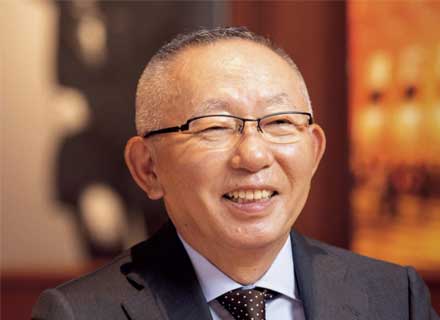The Japanese clothing brand Uniqlo, which stands for ‘Unique Clothing Warehouse,’ is well-known around the world for its straightforward yet fashionable and cost-effective apparel alternatives.
Established in 1984 as a division of the ‘Fast Retailing Co. Ltd.,’ Uniqlo has grown to rank among the biggest and most famous names in the fast fashion industry.
The main principle of Uniqlo is to offer top-notch, innovative, and practical apparel that caters to the demands of people all over the world. Their extensive product line, which ranges from everyday staples like t-shirts, trousers, and jackets to speciality items like heat-retaining HeatTech clothing and light, breathable AIRism clothing, demonstrates their dedication to simplicity and adaptability. Due to its commitment to comfort and fabric technology, Uniqlo has a loyal following of customers.
With a presence all over the world, Uniqlo runs shops in over 20 nations, including numerous countries in Europe, the United States, and China. This extensive reach has strengthened its standing as a significant participant in the quick fashion sector.
Uniqlo’s partnerships with well-known designers and artists have also garnered significant attention. They frequently collaborate with creative individuals to produce limited-edition collections, opening up fashion to a wider market and enabling buyers to enjoy distinctive, one-of-a-kind items.
Uniqlo has also achieved progress in the area of environmental sustainability. They have started a number of eco-friendly measures, including recycling programmes and sustainable material sourcing, as part of their commitment to lowering their carbon footprint.
Uniqlo distinguishes out in the fashion industry for its dedication to providing high-quality, reasonably-priced clothes while supporting innovation and simplicity. Its international reach, partnerships, and commitment to sustainability show that it is still evolving and having a place in the rapidly shifting fashion industry.
The brain behind this successful venture is 74-year-old Tadashi Yanai. He is a Japanese billionaire businessman, the founder and president of the company.
-
Who is Tadashi Yanai?
- Tadashi Yanai was born and brought up in Ube, Yamaguchi, Japan in February 1949
- He completed his graduation in Economics and Political Science from Waseda University in 1971
- Soon after completing degree, Tadashi Yanai started working as an employee at a JUSCO supermarket, selling kitchenware and men’s clothing
- After a year at JUSCO, he quit and joined his father’s roadside tailor shop
- In 1984, Tadashi Yanai opened his first Uniqlo store in Hiroshima and later changed the name of his father’s company Ogori Shoji to Fast Retailing in 1991
- He stepped down from the board of Softbank after 18 years as an independent director at the Japanese technology conglomerate in 2019
- Tadashi Yanai won the ‘International Retailer of Year’ award for 2010 from the National Retail Federation in the United States
- He was included in the 50 Most Influential list of Bloomberg Markets Magazine in 2012
- Tadashi Yanai donated 1 billion yen to victims of the 2011 Tohoku earthquake and tsunami
- As of August 2023, he is the richest person in Japan, with an estimated net worth of USD 34.1 billion and the 37th wealthiest person in the World according to the Bloomberg Billionaires Index
From Hiroshima To The World
In an interview with Japan Forward, Tadashi Yanai spoke about his journey and how his company grew from opening the first small store in 1984 to selling USD 4 billion in clothes every year across the world.
“In 1991, I gathered all employees at our headquarters and announced that we were changing the company name to Fast Retailing. At the time, we had 29 stores, but I told them we would expand the chain by 30 more stores each year and have 100 stores in three years, aiming to go public. That’s when I myself went from being a merchant to becoming an entrepreneur. In 1994, we listed our stock on the Hiroshima Stock Exchange,” Tadashi Yanai said.
When asked why they abandoned the goal of becoming the number one in the world, Tadashi Yanai said, “Zara and H&M grew because they were located in Europe, which has great purchasing power. But we have entered the Asian era. Japan is on friendly terms with many countries in this “growth centre” of the world, including Southeast Asian countries, Bangladesh, Sri Lanka, and India. Japan is in a very good position and we get all the information.”
“For that reason, we definitely aim to be in the number one spot in the end,” he concluded.

